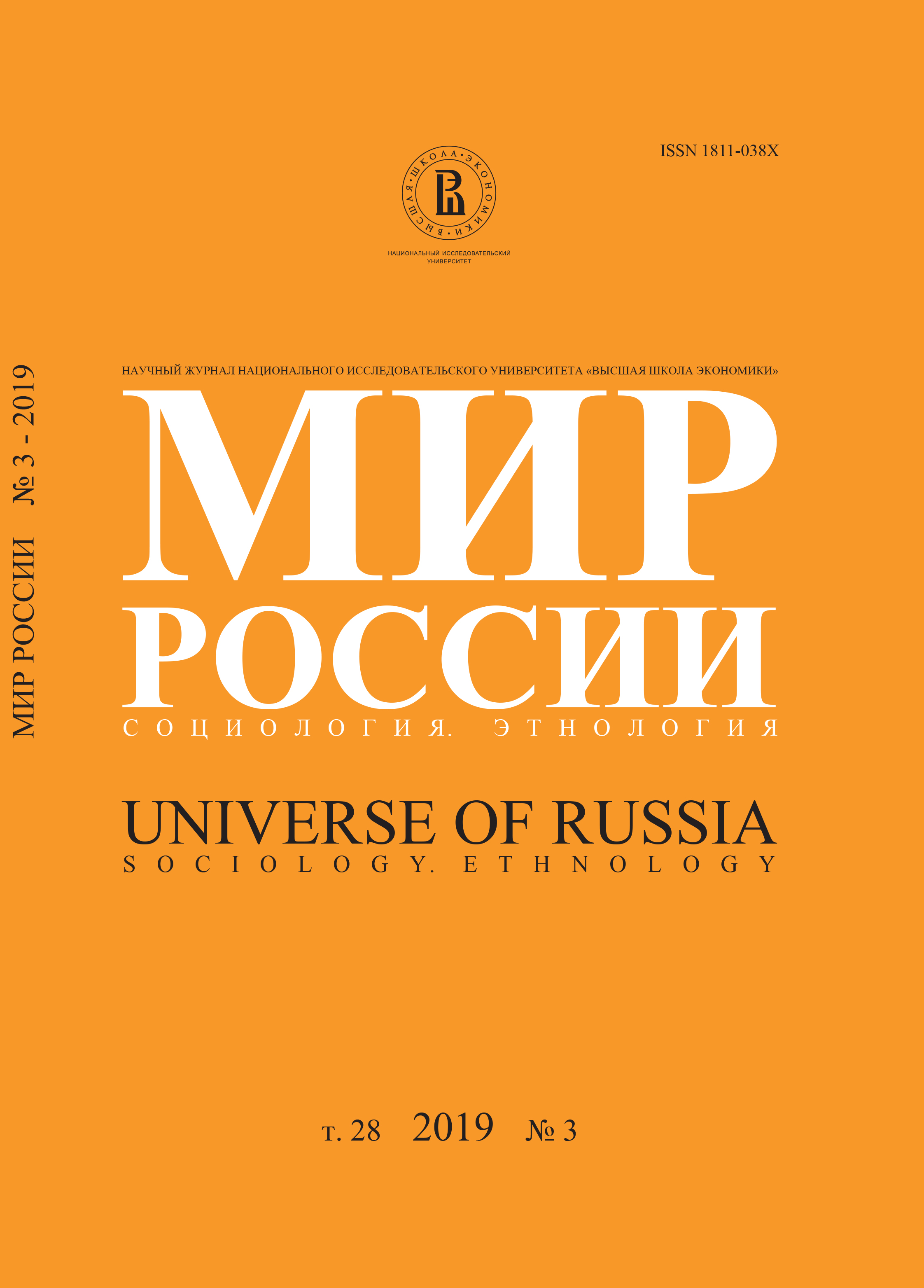Separate Waste Collection in Russia: The Level, Factors and Potential for Citizen Engagement
Abstract
Citation: Shabanova M. (2019) Separate Waste Collection in Russia: The Level, Factors and Potential for Citizen Engagement. Mir Rossii, vol. 28, no 3, pp. 88–112 (in Russian).
DOI: 10.17323/1811-038X-2019-28-3-88-112
Drawing on the results of two representative surveys (2014 and 2017) this paper presents data on the actual and the potential levels of Russians’ engagement in separate waste collection practices, the factors and the conditions for this. To date, only 4–5% of municipal waste is recycled, while most of the waste ends up in dumps, official or otherwise. Multiple attempts to introduce a system of separate waste collection in Soviet and post-Soviet times in various regions and population centers (waste paper collection in schools, separate containers for food waste and other garbage, stationary and mobile separated solid waste collection points, etc.) did not succeed. The population is often claimed to be the weak link in the social mechanism of this practice institutionalization. However, is this really the case?
We apply a multinomial logit regression to evaluate the relative strength of different factors potentially explaining the division of individuals into separate groups defined by their attitudes to separate waste disposal. The results of the analysis show that although the potential of the enthusiastic pioneers has been virtually exhausted, the claims that the majority of Russians are not yet prepared to participate in these practices are not true. However, the potential participants tend to voice more complex demands with regard to the conditions enabling their participation in separate waste collection. The convenience factor (the proximity of garbage containers to people’s homes, adequate time for delivering particular types of waste to the collection points), which has been identified in the studies of evolving practices of separate waste collection, both in developed and developing countries, is also a key factor in Russia. The confidence in the effectiveness of personal efforts to alleviate the issue is also important: people believe that their endeavors are not in vain, the waste collected separately will be withdrawn in a timely and efficient manner, recycled, etc. Interestingly, cultural norms, social incentives and sanctions do not seem to play any significant role in this regard, nor do any material incentives or sanctions. We show that the practice of separate waste collection is mostly driven by prosocial motives, environmental concerns and responsibility. It is barely influenced by self-serving interests and, thus, falls within the realm of civil society practices. It can become another (accessible and straightforward) channel for exercising civic responsibility and independence.
In conclusion, we discuss the future potential of the practices in question and measures to enhance Russians’ participation in separate waste collection.






